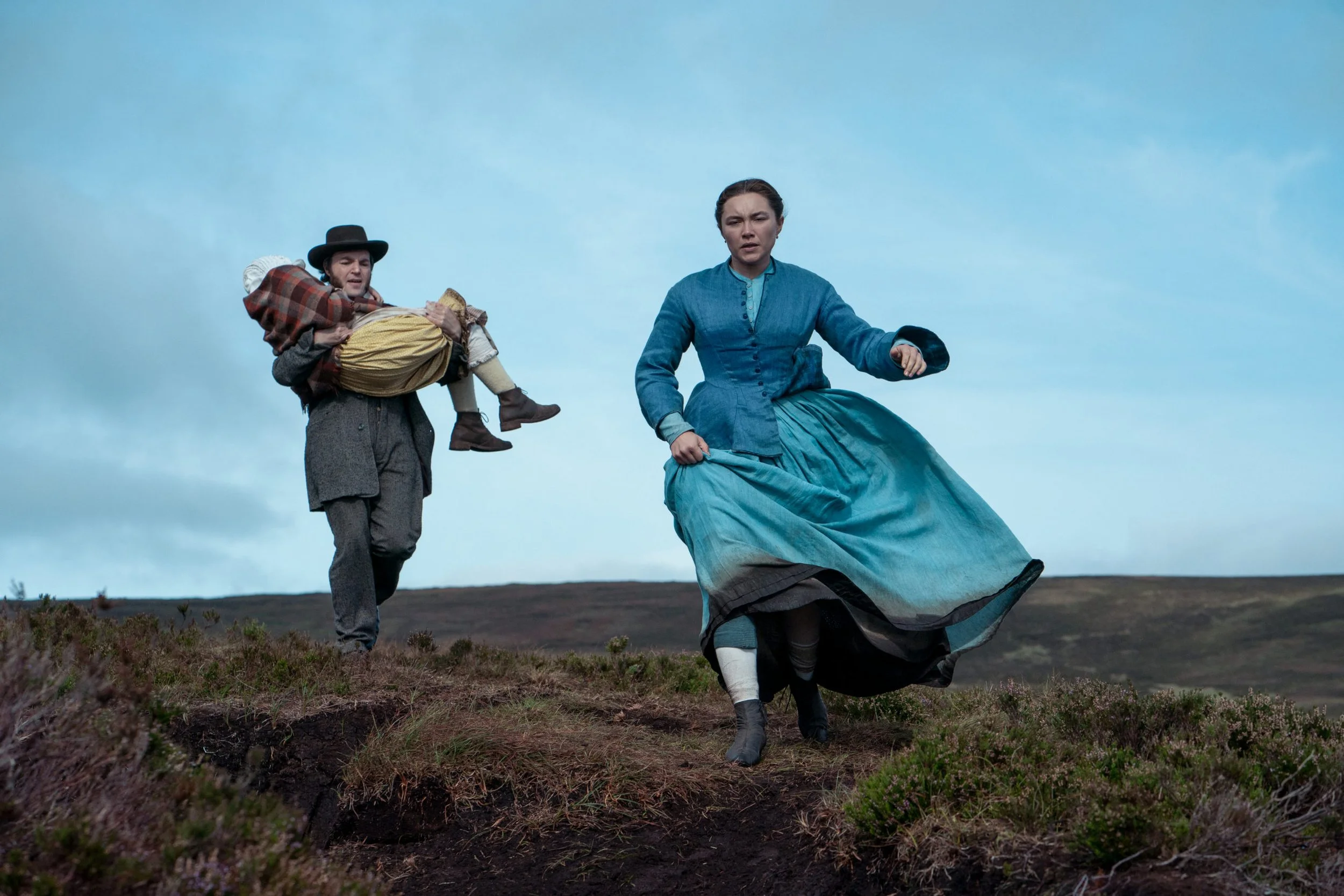The Wonder
Directed by Sebastián Lelio
Running time: 1hr48 | REVIEWED BY GUY LODGE
Kila Lord Cassidy, Tom Burke and Florence Pugh in The Wonder
The Wonder opens on a big Brechtian swing that you might find intriguing or irritating, though either way you should persist: little in Sebastián Lelio’s elegant, mist-sodden period mystery is exactly as it first presents itself. Its first shot doesn’t promise much of a costume drama at all, as we gaze over the raw timber bones of a modern-day film set — the scruffy reverse sides of artificial facades, under hard white lighting in a hangar-like studio — as a floating, unidentified voice (Niamh Algar’s, it turns out) reminds us to what extent we’re defined by stories. I confess I may have half-rolled my eyes.
But just then Ari Wegner’s camera peers into the set, closing in on a corseted Florence Pugh hunched over a bowl of soup in a creaky Victorian galley, and cropping out the present day. Sure enough, the story reels us in: it’s 1862 and we’re sailing to rural Ireland with doughty English nurse Lib, on an assignment that starts out curious and keeps curving away from us. It’s appropriate that The Wonder begins by testing our powers of belief, since it’s a whole film about that very confrontation: the fictions we invent to make sense of our existence, the ways we sell those to ourselves and others, and the occasional human need to defy someone else’s reality. If you hadn’t guessed, it’s a story of religion. But faith here is invested in community and family too, sometimes destructively so. Individual narratives tensely battle collective ones; neither emerges entirely truthful.
Lib, it turns out, has been recruited to stand watch over God-fearing preteen invalid Anna (extraordinary newcomer Kíla Lord Cassidy), who is still alive despite, it is said, not having eaten a morsel for months. Her claim to be subsisting on “manna from heaven” is supported by her family and local Catholic Church elders, who believe her to be a miracle child. Lib, a practically-minded agnostic, has more grounded theories, ones that could save the ailing girl’s life; everyone else would prefer to believe in Anna’s holiness, even if it kills her. Adapting Emma Donoghue’s novel with the author herself and co-writer Alice Birch (Lady Macbeth), Lelio has constructed a taut thriller of philosophy, granting urgent stakes and an itchy ticking clock to its ideological conflicts. You may find yourself cringing, sweating, all but shouting at the screen for Anna's sake, even as the film coolly reminds us that it's all just a story — but one that reminds us of other life-or-death sagas, ones not couched in evocations of the past or theatrical set-dressing.
That we're this involved is down to Pugh, the great screen ruminator of her generation, always best in films that give her room to watch and contemplate, and us room to watch and contemplate her in turn. Dressed throughout in an ocean-blue hoop skirt — a more servile version of her signature Lady Macbeth column — that brashly clashes with the rain-grey skies of Ireland, bespeaking Lib’s foreignness of origin and thinking, Pugh strides into the film with a vulnerable certainty of purpose, a kind of anti-Mary Poppins gravity: a disbeliever to believe in. The Wonder shows us to be nothing without stories, but equally adrift with them.
THE WONDER (2022) Written by Sebastián Lelio, Alice Birch and Emma Donoghue | Shot by Ari Wegner | Edited by Kristina Hetherington
Now in selected cinemas and streaming on Netflix from 16 November
